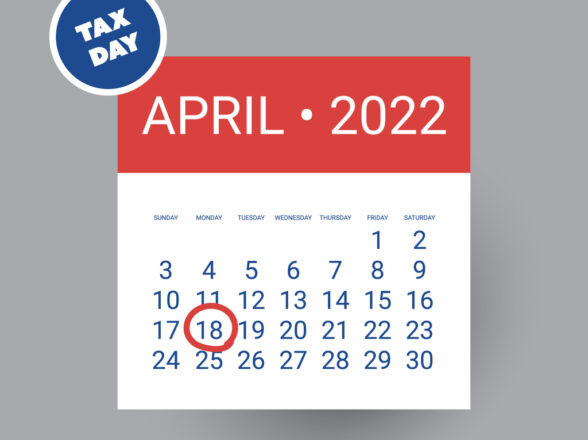Blog
Another Round of Retirement Savings Reforms this Year?

A new round of retirement reform is moving through the House and Senate and, so far, President Biden could very well enact these sweeping changes this year. The legislation as formulated in the House bill and somewhat differently in the Senate bill is incremental rather than revolutionary, which probably is why it is winning support. But for participants and potential participants in private retirements plans, we believe the new reforms could offer significant gains.
The House bill, called the “Securing a Strong Retirement Act of 2021” is sponsored by Representative Kevin Brady (R., Texas), ranking Republican member of the House Ways and Means Committee. Brady himself has announced he will retire by the end of 2020. Co-sponsor of the bill with Brady is the chairman of the House Ways and Means Committee, Richard Neal (D., Mass.).
The legislation–nicknamed “Secure Act 2.0” because Brady was key to passage of the Secure Act in 2019—was pushed through the Ways and Means Committee just last week. That leaves a long way to go before the legislation makes it to President Biden’s desk.
Any bill before it reaches the President will have to be approved by the Senate as well as the house, but this week a similar, but much more limited bill, began its journey through the Senate. The Improving Access to Retirement Savings Act was introduced into the Senate by Senator Chuck Grassley (R., Iowa) and two others. Like the Brady/Neal bill in the House, it aims to increase participation in retirement plans such as multiple employer plans and also to incentivize small businesses to get more employees involved.
Both plans have won the support of many retirement groups, so that now lawmakers in both houses must settle upon provisions everyone can agree to support and get both chambers of Congress to pass them.
Retirement legislation affecting American workers today have come in stages, with the first such major legislation in 2006 and the second (the “SECURE ACT”) in 2019. The third round would change—again–the way Americans save for retirement, how many save, and how they may use their savings.
Changing required minimum disbursements
The House legislation proposes to raise the age at which people are required to start taking mandatory distributions from private retirement plans (401(k) plans and IRAs). The SECURE Act in 2019 increased that required minimum distribution age from 70 to 72. The new bill raises it to 75.
The chief reason is that people are living longer, Rep. Brady said, so that they should be allowed to continue to grow their retirement nest egg a few more years before having to dip into it. Actually, Rep. Brady has said in the past he would like to get rid of the restriction entirely, so people could grow their retirement savings without dipping in as long as they wished. Here at Infinium, we would support the abolishment of the RMD, but let’s face it, in light of massive budget deficits, Uncle Sam doesn’t want to delay getting his cut of your retirement plan!
In Brady’s current bill, there is an exemption for retirees from minimum distributions for their entire lives if they have less than $100,000 in all their retirement plans when they reach age 75.
(As a temporary break for retired people, the coronavirus stimulus bill passed in March of this year did permit retirees to skip their minimum distributions that year if they wished to do so.)
Automatic enrollment
Another thrust of the Brady/Neal bill would be to increase automatic enrollment of new employees in the retirement plans of companies that have them. Employees still could choose not to enroll, but if they did not opt out, now, they would be enrolled automatically—by default. Studies have shown consistently that automatic enrollment of employees achieves higher rates of participation in the retirement plans; “Auto-enrollment almost doubles plan participation and successfully gets participants who might not have otherwise saved.” The ultimate goal, Rep. Neal said at a recent hearing, is “enrollment for all.”
Another new feature would allow employers to help their workers to pay back student loans without postponing all their retirement saving. They could do so by paying down their education loans with money they otherwise would put in an 401 (k) plan, but the employer nevertheless would continue to “match” their “contribution” with money that would go into their retirement plan.
Other provisions
Neither of those two features of the Brady/Neal bill would have much impact upon the one-third of private-sector workers who have no access to a retirement plan at work. But another provision of the House would make changes in the SAVERS credit plan, which gives lower-income workers some additional tax breaks when they save for retirement. One change would simply the SAVERS program and index the credit workers get under the plan to inflation.
Finally, the proposed legislation in the House would create a “clearinghouse” through which employees could find lost retirement accounts by consulting a national database. It turns out that money in many tens of thousands of retirement plans goes unclaimed by anyone when workers move from company to company and lose track. Along the same line, the bill would make life easier for workers moving from state to state who participated in different state-level plans. There also is a provision to help workers more than 50 years of ago to catch up on retirement plan contributions.
Just as they do not greatly impact workers without access to a retirement plan at work, the incremental changes offered by “SECURE ACT 2.0” do little to address the potentially huge challenge of Social Security, which could see at least the beginnings of a shortage of funds by 2031.
Infinium Investment Advisors
At Infinium Investment Advisors, LLC, our team has a history of progressive thinking and solutions that are client-centered. That means we are ready to get a grasp of what is most important to your plans, your life, and then to work with you in the long-term, informed, and consistent way required to get where you want to go. Please be in touch HERE if you would like to chat on your most pressing needs.

































































































































